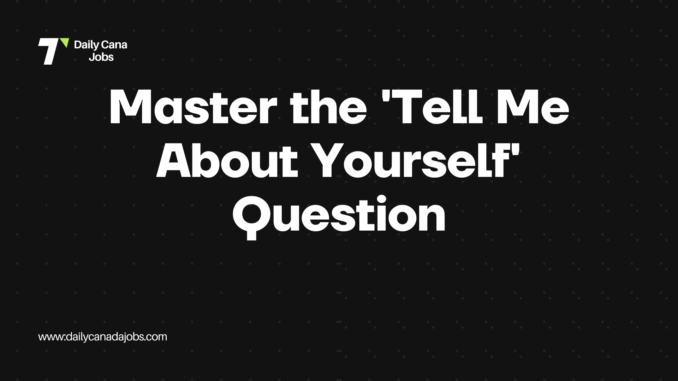
The “Tell me about yourself” question isn’t just an icebreaker—it’s your critical first impression opportunity. Research shows interviewers form 80% of their opinion about candidates in the first 90 seconds, making this seemingly casual question perhaps the most important one you’ll answer.
The Problem With Most Responses
Most candidates make three critical mistakes when answering this question:
- Rambling through their entire life story, forcing interviewers to mentally filter what’s relevant
- Reciting their resume chronologically, which wastes the opportunity to highlight their unique value
- Focusing solely on technical skills without addressing cultural fit or personality
These approaches fail to engage interviewers and miss the real purpose of the question: to quickly assess if you’re the solution to their problem.
The 60-Second Formula That Works
The most effective “Tell me about yourself” responses follow this proven structure:
1. Present (10-15 seconds)
Start with your current professional position and one significant achievement that demonstrates your core strength.
Example: “I’m currently a Senior Marketing Analyst at TechGrowth, where I’ve led our data analytics team in developing attribution models that increased conversion rates by 32% over the past year.”
2. Past (20-25 seconds)
Briefly highlight 1-2 relevant experiences that built your qualifications for this specific role.
Example: “Before that, I spent three years at DataInsight, where I specialized in consumer behavior analysis and developed my expertise in predictive modeling. I also earned my certification in Advanced Marketing Analytics, which helped me develop the technical foundation for the strategic work I do now.”
3. Future (15-20 seconds)
Connect your background directly to the position you’re interviewing for, showing why you’re excited about this specific opportunity.
Example: “I’m particularly drawn to this Growth Marketing Manager role at your company because it combines my passion for data-driven decision making with the opportunity to lead strategic initiatives in an industry I’m passionate about. I’m especially interested in applying my experience with multi-channel attribution to help scale your customer acquisition efforts.”
4. Person (5-10 seconds)
Add a brief personal touch that makes you memorable and hints at cultural fit.
Example: “Outside of work, I host a small marketing podcast where I interview analytics professionals, which keeps me connected to emerging trends and has sharpened my communication skills.”
Why This Formula Works
This structure works because it:
- Respects the interviewer’s time by delivering a concise, relevant response
- Follows a logical narrative that’s easy to follow
- Highlights your most impressive achievements rather than your entire history
- Demonstrates your understanding of what matters for the specific role
- Shows you’ve done your research about the company and position
Customization Is Key
While the formula remains consistent, your content should be tailored for each interview. Research the company’s challenges, culture, and the specific role requirements. Then select the experiences and achievements that best demonstrate your ability to address their needs.
Practice Makes Perfect
The best candidates sound natural, not rehearsed. Practice your response until you can deliver it conversationally while hitting all key points. Record yourself and listen for filler words, pacing issues, or areas where you sound uncertain.
Beyond the Formula: Reading the Room
Remember that this formula is a starting point. Be prepared to adjust your response based on the interviewer’s reactions. If they lean in when you mention a particular skill or achievement, be ready to expand on that area if they ask follow-up questions.
By mastering this crucial first question with a strategic, concise response, you set a positive tone for the entire interview and significantly increase your chances of advancing to the next round—or receiving an offer.
Leave a Reply